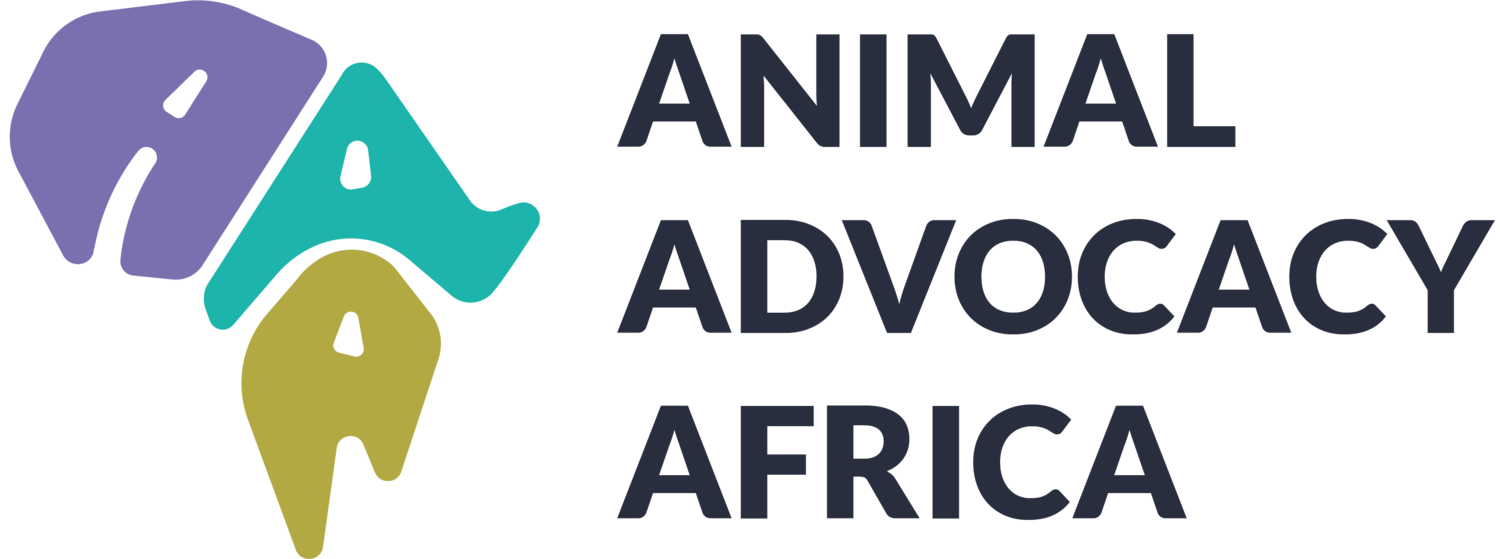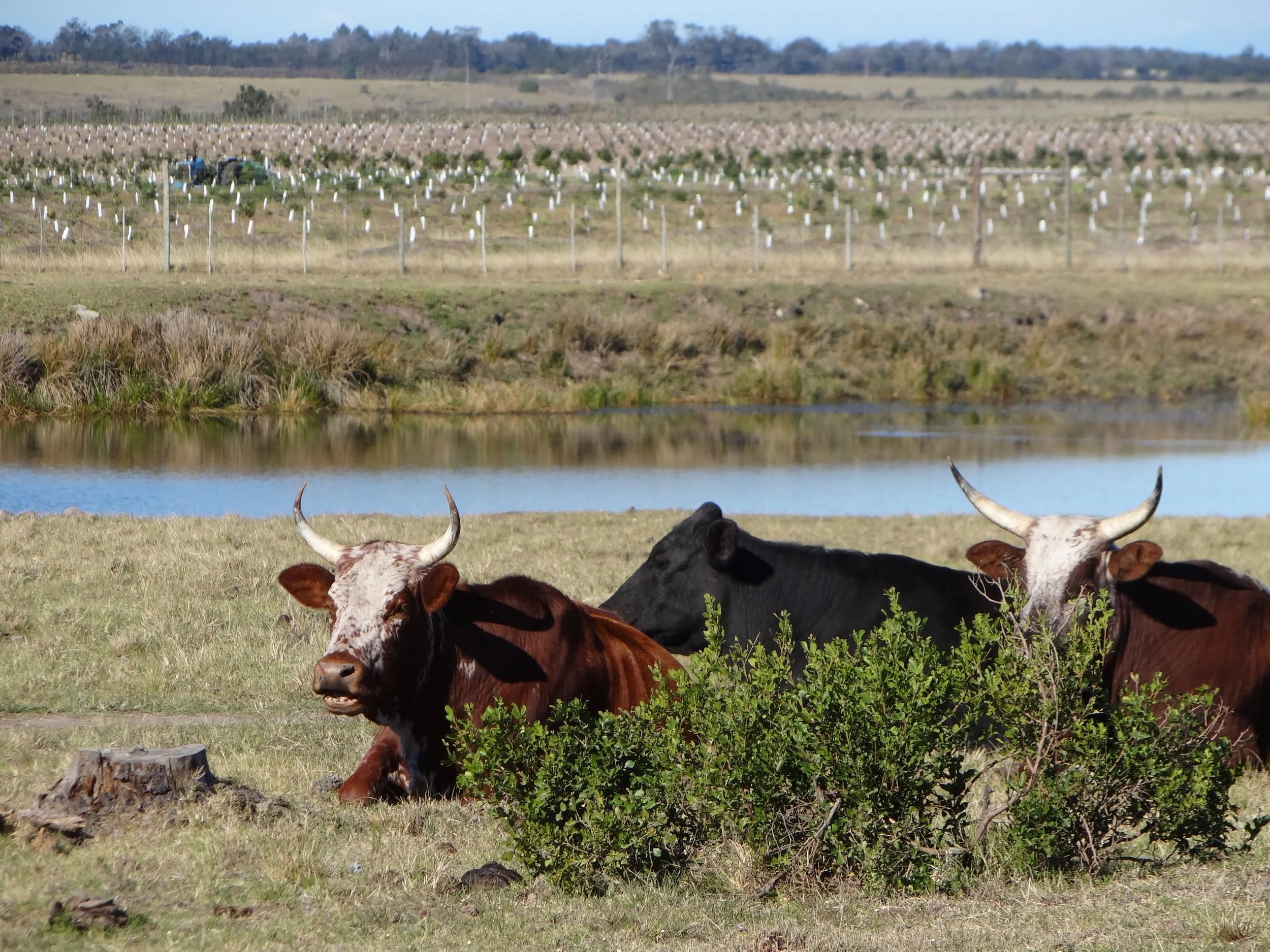Case studies from our pilot programme
Animal Advocacy Africa (AAA) works to strengthen the capacity of animal advocacy organisations in African countries by helping them increase funding and effectiveness. During our landscape research to address knowledge gaps related to the state of animal advocacy in populous low and middle-income countries in Africa, we found that:
Animal welfare is a novel topic in Africa and the effective animal advocacy movement is in its nascent stages.
A lack of funding is one of the largest bottlenecks that African animal advocacy organisations face in their work.
Prospective funders are interested in channelling more funding to African animal advocacy work. However, funders have reservations about doing so considering the lack of information about funding opportunities that are promising, in addition to the more general knowledge gap when it comes to understanding the most effective type of intervention in Africa.
Farmed animal welfare is highly neglected in Africa. We believe now is an optimal time to help farmed animals, whose welfare can be improved cost-effectively.
Based on these findings, we designed and implemented a pilot programme which took place from July to October 2021. In this period, we reached out to 20 animal welfare organisations in Africa that are doing work to reduce animal suffering, especially that of farmed animals. 11 of these organisations were randomised into a ‘support’ group and the remaining 9 organisations into a ‘control’ group. We supported organisations in the ‘support’ group on a one-to-one basis, which consisted of providing:
Tailored recommendations on relevant funding opportunities and resources/support after researching the fit and alignment of an opportunity and their organisational needs/scope
Feedback on organisations’ grant applications and fundraising proposals
Connections to the international animal advocacy community (e.g. funders, mentors, volunteers)
Needs assessment to identify gaps in aspects that form the fundamental blocks of an effective nonprofit organisation (e.g. theory of change, measurement and evaluation, financial planning, communications, annual strategic plans)
Support on the development and implementation of these fundamental aspects by providing templates and advice on best practices in running an effective nonprofit organisation
In November 2021, we evaluated the feasibility and impact of our pilot intervention, reviewing areas of successes and improvements. We collected survey data from organisations and conducted exit interviews with them. This report provides a qualitative evaluation of our intervention on programme beneficiaries. Below, we present three case studies involving three animal advocacy organisations in Africa.
Case Studies
International Organization for Animal Protection Cameroon (OIPA Cameroon)
About the organisation
OIPA Cameroon is a local branch based in Cameroon, of the International Organization for Animal Protection. They work to improve the welfare of all animals, including farmed animals, through a broad range of activities such as humane education and direct veterinary help. We worked with Che Gilbert Ayunwi, International Representative of OIPA Cameroon during the duration of our pilot.
Feedback and outcomes
Approximately 50% of the funding opportunities on our database and tailored recommendations were not known by Che. After receiving support from us, the number of relevant funding opportunities that OIPA Cameroon is now able to apply for has increased. As a result of our feedback on their grant applications, Che mentioned that his grant writing ability has improved, which will be valuable for future applications. He said the extensive feedback we provided was important as this was not accessible or available to him in the past.
We also provided advice on setting up operations and financial management systems. As a result, Che recruited two volunteers to support him with accounting and finances. This subsequently led to improved budget management and resources being diverted to areas with less attention.
Che is happy to recommend our work and services to other animal advocacy organisations in Africa that may benefit from our support.
“AAA’s support has been wonderful… most [capacity-building support provided by] organisations have not been consistent or dug deep enough into the difficulties that we are facing”
Help Initiatives for People Organization (HIPO), Zimbabwe
About the organisation
HIPO is an organisation based in Masvingo, Zimbabwe, that works to improve the welfare of companion and farmed animals (particularly chickens, cattle and dogs) through farmer and public education. We worked with Happison Chikova, Executive Director of HIPO throughout our pilot programme.
Feedback and outcomes
According to Happison, before receiving our support, it was difficult to find diverse funding sources that he could apply to. From his experience, funding opportunities relevant to animal advocacy work in Africa were often scattered and required in-depth searching. However, our database has made this process easier. Since becoming aware of these opportunities in July, he has applied to funding opportunities by the Effective Altruism Animal Welfare Fund and ProVeg with estimated requests of $50,000 to fund current and future animal welfare projects. Happison is grateful for the feedback and edits we provided on his funding applications, and acknowledged that his writing style has improved.
Happison was also invited to be a guest speaker at our first webinar, which provides a platform for organisations to present their work to the wider community, and to connect with other advocates within and beyond the continent. Through this speaking opportunity, HIPO has received more networking opportunities and more attention on their work, particularly on Linkedin. He also connected with other animal welfare organisations he was previously unaware of in Zimbabwe.
“AAA assisted me in putting the necessary systems and structures in place. For example, I now have a clear strategic plan and fundraising plan… their guidance helped me focus on the objectives and key issues of our organisation”
Sibanye Animal Welfare and Conservancy Trust, Zimbabwe
About the organisation
Sibanye Animal Welfare and Conservancy Trust works to improve the welfare of companion and farmed animals. They also address conservation issues relating to wild animals. We worked with Alfred Sihwa, Executive Director of the organisation during our pilot.
Feedback and outcomes
In addition to providing operational templates on strategy (including fundraising), monitoring and evaluation, and finances, we provided training on developing and implementing these plans and policies after adapting them to his organisational needs and scope. This has helped him reflect on their strategy as an organisation, and make subsequent improvements.
At the time of writing, we are helping Alfred develop an organisational website by connecting him to a software developer volunteer. With a website, Sibanye will be able to promote their work, and increase their online presence and credibility as an organisation.
“....working on [the grant application by] UMANO, AAA’s feedback was very helpful, they pointed out things that were missing in our previous proposals… there were also improvements to our budget, in making succinct and shorter introductions, and in ensuring that our proposal aligned with the criteria of the funding application”.
Areas of improvement and next steps
This qualitative analysis is one method in which we are evaluating the impact and feasibility of our pilot. We are working on collecting more robust, quantitative estimates about the outcomes of our support.
Importantly, we are planning to improve the current version of our pilot based on feedback provided by organisations. For example, there were times where we failed to communicate clearly about what our support consisted of and to manage the expectations of organisations in a transparent manner. This led to lower interest and engagement from organisations as there was a disconnect between what an organisation wanted and what we were offering as an intervention. Some organisations suggested that we improve the structure of our meetings and present clearer agendas so organisations have a better understanding of what to expect. We are developing a written framework of our programme going forwards which will outline our approach, timeline, and expected outcomes of our programme. We hope this will clarify what participating in our programme means for future organisations and whether the nature of our support is a good fit for them.
While we fully acknowledge that this qualitative evaluation and anecdotal feedback from organisations are subject to social desirability bias and reporting bias, the case studies present some preliminary evidence of our progress providing capacity building support to organisations. Feedback from these (and the other two not included in this write-up) organisations suggest that they are interested in receiving continued support and that we have strengthened their capacities so that they will be able to do more work, secure more funding, and have more impact in the future.
Disclaimer: some of the testimonials provided by organisations are lightly edited for readability purposes.




